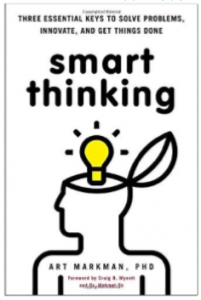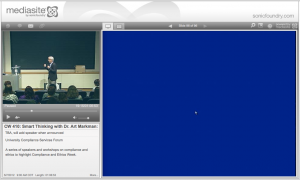
Reading good books makes us smarter. And several years ago, UT’s very own Dr. Art Markman created a simple, easy-to-understand way to help anyone, including students, improve their thinking and their learning habits.
Smart Thinking is a book that explores how we think –and how we can do it better. Since thought is the cornerstone of everything we do at UT, it’s a particularly important skill to improve.
Among the key skills this book will help your students master:
- Explain things to yourself –or better yet—to someone else. This helps you solidify the knowledge you already have and identify any gaps.
- Create summaries of what you know. Find specific things you know you will use in the long term, identify them (it will make them more memorable), and summarize them for future retrieval.
- Slow down and think about your actions. Why did you make a particular choice or choose to do things in a particular way? This helps you make new associations that help memory, aid future problem solving, and improve judgement.
- Structure your understanding around three things:
- The objects (people & things) involved.
- The events that happened.
- The causal understanding (why things happened).
If you (or your students) don’t have time to read the whole book, no problem. Dr. Markman gave a 1-hour presentation just for UT staff and faculty a few years ago and it’s still available for free on Mediasite:

Note: if you’re using a Mac, this video works best in Firefox.
If your students are looking for more resources to help them develop smarting thinking and study habits, visit UT’s Sanger Learning Center.


Leave a Reply
You must be logged in to post a comment.